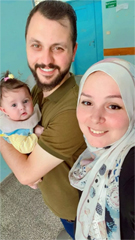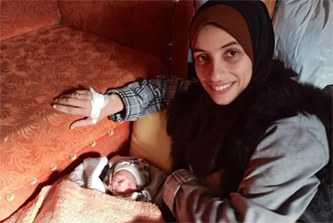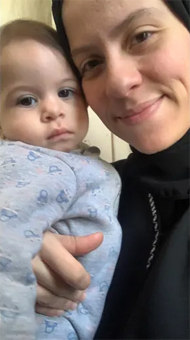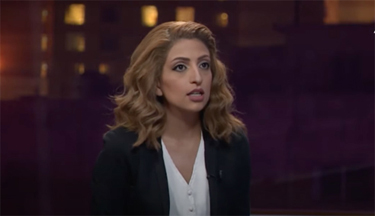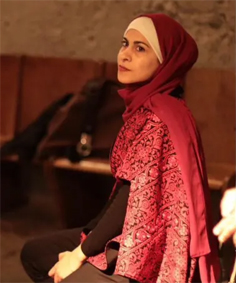|
CRY FREEDOM.net
formerly known as
Women's Liberation Front
MORE INSIGHT MORE LIFE
Welcome to cryfreedom.net,
formerly known as Womens
Liberation Front.
A website
that hopes to draw and keeps your attention for both the global 21th. century 3rd. feminist revolution as well
as especially for the Zan, Zendegi, Azadi uprising in Iran and the
struggles of our sisters in other parts of the Middle East. This online magazine
that started December 2019 will
be published every week. Thank you for your time and interest.
Gino d'Artali
indept investigative
journalist
radical feminist and women's rights activist
'WOMEN, LIFE, FREEDOM'
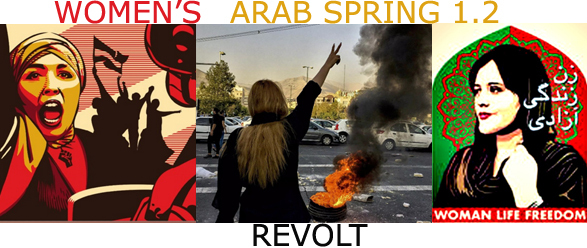
You are now at the section on what is happening in the rest of the Middle
east
(Updates
August 10, 2024)
Click here for the
Iran 'Woman, Life, Freedom' section
Updated August 2, 2024
For the 'Women's Arab Spring 1.2' Revolt
news
click here
Updated August 2, 2024
SPECIAL
REPORTS ISRAEL-GAZA GENOCIDAL WAR
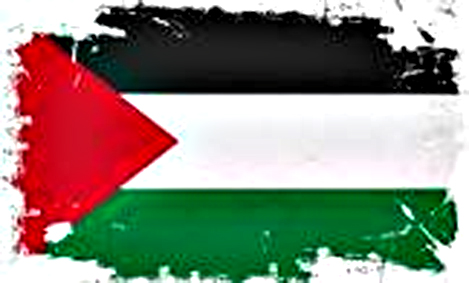
CLICK HERE ON HOW TO READ
ALL ON THIS PAGE
|
SPECIAL
REPORTS PALESTINE

FROM THE RIVER TO THE SEA - FREE PALESTINE
August
wk2 -- August
wk1 P2 --
August wk1 --
July wk4 P3 --
July wk4 P4/2-- July
wk4P4 -- July
wk4 P3 -- July
wk4 P2 --
Click here for an overview by week in 2024
When one hurts or kills a women
one hurts or kills hummanity and is an antrocitie.
Gino d'Artali
and: My mother (1931-1997) always said to me <Mi
figlio, non esistono notizie <vecchie> perche puoi imparare qualcosa da
qualsiasi notizia.> Translated: <My son, there is no such thing as so
called 'old' news because you can learn something from any news.>
Gianna d'Artali.
Dear reader, as history always repeats itself in all wars, wherever and
whyever they take place, it are always the women and often also
(widowed) mothers and (orphaned) children that are targeted and victims
first. That is why they need our utmost attention and moreso support and
so hear their stories
Al Jazeera - August 7, 2024 - By Maram Humaid
<<'My children cry all day from the heat': Life in Gaza’s tent camps
Displaced mothers share how they try to help their children cope with
sweltering, unsanitary conditions.
Deir el-Balah, Gaza - It is around 7:30pm and the sun is setting when
Nimah Elyan and her four youngest children return home - a beige-coloured
tent in a temporary camp in Deir el-Balah in central Gaza - after trying
to escape the heat by going to the beach. "The tent in the summer is
hell," says 45-year-old Nimah as she uses a sponge and a bucket of water
to wash her children who are under the age of seven. "We cannot stay
inside the tent for even five minutes during the day. The heat is
absolutely unbearable." To escape the sweltering conditions during the
day, Nimah takes her children to swim in the sea, which lies a few
kilometres away. Her children look sleepy as they pull off their
clothes, their skin reddened from being outdoors all day. Nimah’s
four-year-old daughter sits on the ground eating fava beans, leftovers
from last night's dinner. "My children cry all day from the heat," she
says, explaining how their skin suffers from constant exposure to the
sun, a lack of hygiene products and water scarcity. The water they use
to bathe and drink is collected by her children from the nearby
hospital. "Every day around 11am, when the weather becomes unbearable,
we ride on a donkey cart to the sea," Nimah explains. Going to the sea
is not easy, but Nimah says the heat gives her no choice. But when there
are Israeli attacks, they are forced to stay in the camp and in their
hot tent. It costs the family about 20 shekels ($5) for the 40-minute
donkey cart ride to the shore and they often have to wait in the sun
before securing transportation. Sometimes it never arrives, and they
walk to the beach. Once there, Nimah sits on the sand and watches her
children. Sometimes she joins them in the water. And when they return
home in the evenings, Nimah washes the salt from her children's bodies
and then tries to feed them with whatever is available. "The living
conditions are very difficult. Because of this daily journey, we miss
the food distributed daily by the community kitchen, which makes
providing food a problem," she shares. Some days they stay in the camp
to collect food from the community kitchen that distributes free meals
or food aid parcels.
'Ravaged our children's bodies'
Nimah was displaced from the Nassr neighbourhood in Gaza City in the
north to Deir el-Balah in early March, escaping what UN experts are
saying is famine that is now spreading in Gaza. Her husband and two
older sons were determined not to leave their home, and remained in the
north. "I endured dangerous conditions and bombing for about five
months, but we escaped extreme hunger in the end," says the mother of
nine. "Now we face the war of displacement in tents and a summer that
has ravaged our children’s bodies," Nimah adds, pointing to her
one-year-old granddaughter whose body is partly covered in a rash. The
baby's mother, Nimah's 21-year-old daughter Nahla, lives in a nearby
camp and was in her mother's tent after being at the beach with her
mother and siblings. "[I] live in a tent made of nylon with my husband,
my daughter, and my husband's family of eight," she explains as she
holds her baby. They spend most days walking around trying to find a
shaded area, she adds. "My daughter suffers from a bacterial rash that
has spread all over her body, and medical ointments haven’t helped,"
Nahla says. She visited Al-Aqsa Martyrs Hospital, the lone medical
facility operating in Deir el-Balah, where "doctors said it worsens due
to the extreme heat and advised cooling her with water, which is
scarce". Nahla says that many children in the camp suffer from similar
rashes as a result of the unhygienic conditions, lack of water and heat.
More than 150,000 people in the enclave have contracted skin conditions
as a result of the unsanitary conditions Palestinians have been forced
into since the start of Israel’s war on Gaza on October 7, according to
the World Health Organization (WHO). As of July 29, the WHO reported
65,368 cases of rash, 103,385 cases of scabies and lice and 11,214 cases
of chickenpox since the start of the war.
"I feel sad for our children, but there is no help," says Nimah as she
washes her six-year-old daughter. "We are forgotten."
'We are burning alive'
Heba Sheikh Khalil, a 38-year-old mother of eight, sits in a small
shaded area opposite her tent with her family, fanning herself with a
piece of cardboard. "My face is two colours, as you can see. The burned
part sums up all our suffering," Heba tells Al Jazeera, pulling back her
veil to show the contrast with her exposed, reddened skin. "We are
burning alive," she says angrily. "The intense heat inside the tent is
indescribable." According to Heba, coping with the heat, which is most
intense between six in the morning and six in the evening, is a daily
struggle for people in the camp where they live. "The sun's rays are
vertical during the daylight hours," she shares. "My children and I
spend the day searching for shade or walking in the streets, hoping for
a cool breeze but finding none." Heba's family was displaced from the
Shujayea neighbourhood east of Gaza City in October and moved to Deir
el-Balah, and then to the Nuseirat refugee camp. Her home had a long
living room and five large rooms. "The air played games in it," she
says, recalling the fresh breeze in her now-destroyed home. "Now I live
in a tent. We are eaten by flies and insects. There is no water, so my
children shower at Al-Aqsa Hospital nearby," she explains, adding that
her family goes to shower every 10 days. Heba's suffering extends beyond
discomfort from the scorching weather to heatstroke, headaches,
dizziness and mosquito and fly bites that have proliferated in the
difficult conditions. "The tent environment is very miserable. There is
no infrastructure or drainage for sewage and wastewater, leading to
insect proliferation," she says. Health conditions in the makeshift
camps have gotten worse due to piles of rubbish and the accumulation of
sewage, risking the spread of infectious diseases, warn United Nations
agencies. Meanwhile, the WHO said it was sending one million polio
vaccines to Gaza after poliovirus was found in sewage samples. "The
suffering is multifaceted: extreme heat, garbage, wastewater, and a lack
of clean water and detergents, whose prices have significantly
increased," Heba says.
"We are living in hell on earth. Every day I wake up hoping this is a
bad dream that will end."
SOURCE: AL JAZEERA>>
https://www.aljazeera.com/features/2024/8/7/my-children-cry-all-day-from-the-heat-life-in-gazas-tent-camps
France 24 - August 5, 2024
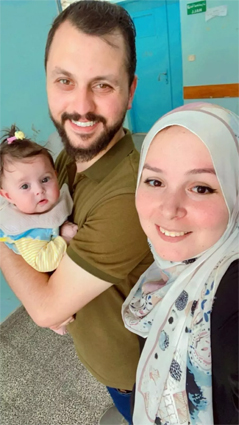
Shorouq
France 24 - July 28, 2024
<<'We have nothing left in this world, except our daughter': a young
mother on life in Gaza
Shorouq spoke to FRANCE 24 in November about the challenges facing
pregnant women in Gaza, which is experiencing severe shortages of both
food and medical care. Eight months later, we asked her how she and her
family are coping; not only do they face a constant threat from air
strikes and shelling, but Shorouq's daughter is suffering from stomach
parasites due to dirty water. When FRANCE 24 spoke to Shorouq in
November, she was pregnant with her first child and living in a shelter
in Khan Younis in southern Gaza. She gave birth in a hospital via
C-section two months later, saying she was “very lucky” to have received
a spinal anaesthetic. But the very next day she was forced to flee to
Rafah to escape a rise in fighting.
"I tried four medical clinics in the hope someone could remove the
stitches from the C-section. But I didn't find anyone," she says. "So my
mother took the stitches out for me. We had no other choice." Shorouq
did not receive any postnatal care, which is defined as the period six
to eight weeks after giving birth. For a C-section, postnatal care would
have included a health professional removing the stitches using sterile
equipment and monitoring how the scar is healing to guard against
infection. "Pre-conflict, mothers in Gaza were able to access basic
care," says Hiba Alhejazi, from the humanitarian charity CARE
International. "For example, they had access to hospitals where they
could get their baby weighed, where checks could be done for certain
health indicators, and there would be follow-up care for her. On a basic
level, that kind of care was available." Research published in May by
the Palestinian non-governmental organisation Juzoor, a CARE
International partner, found that two-thirds of the Gazan mothers
surveyed – all of whom gave birth during the current conflict – did not
receive any postnatal care.
'Our apartment has been completely destroyed'
Shorouq has since fled again and is living, under the blistering summer
heat, in a tent in the centre of Gaza. "I've had to flee seven times,"
she says.
All of the clothes and toys she carefully picked out for her baby during
her pregnancy are gone. "We've been told that our apartment has been
completely destroyed. Right now we have nothing left in this world,
except our daughter."
'My baby is in huge pain'
Shorouq had to give up breastfeeding when her daughter was three months
old. She did not have sufficient breast milk because she could not
access enough food or water for herself to sustain a steady supply. She
now bottle-feeds her daughter, but sometimes she is forced to make up
the formula with water that she does not know is safe. "We buy purified
water for our daughter when we can, but it costs a lot of money and we
cannot always find it, so we have to use recycled water," she explains.
Unsanitary water has given her daughter intestinal parasites. "My baby
is in huge pain in her stomach, she cries a lot. You can see there's
something wrong in her stool, her sleep is broken and she never feels
rested, she's uncomfortable and suffering," says Shorouq. Desperate, she
tried 13 pharmacies before managing to get hold of the antibiotics her
daughter needs. She expects the antibiotics to work but knows the
parasites will return if she cannot consistently find clean water for
her daughter. "All I'm asking is that she recovers from the problem in
her stomach and for her to have good health. I pray for her every day,"
Shorouq says. "Water sanitation facilities have broken down," Alhejazi
explains. "There's sewage everywhere. We're in summer so it's hot, which
obviously increases the risk of dehydration. Lack of access to clean
water is a constant issue. And that's also why you see the spread of so
many infectious diseases."
'This war has exhausted us'
The UN estimates that 5,500 women give birth every month in Gaza, or
about 180 per day.
During and after their pregnancies, they all face the stress and fear
caused by air strikes, helicopters and drones in the skies above their
heads.
Israel launched a military offensive on Gaza after Hamas attacked
southern Israel on October 7, killing almost 1,200 Israelis and
foreigners and taking more than 250 people hostage. The Hamas-run health
ministry in Gaza says more than 39,000 people have since been killed and
almost 90,000 injured by Israeli strikes on the enclave.
"I wish that this would end; we're really tired. This war has exhausted
us," says Shorouq. "We're strong people in Gaza, but even iron-strong
people are tired. None of us know when this will end. Each time they
announce that there could be a ceasefire, but nothing changes for us on
the ground."
After a six-day pause in the fighting late last year in exchange for the
release of 105 hostages, ceasefire talks between Israel and Hamas have
faltered.
Meanwhile, Shorouq and her daughter are coping as best they can. But
Shorouq feels helpless most of the time.
"I would do anything in the world for my daughter," she says.
"You cannot imagine how it feels when your child needs help, but you
cannot help them." >>
Source:
https://www.france24.com/en/middle-east/20240728-we-have-nothing-left-except-our-daughter-young-mother-gaza-speaks-to-france-24
Women's
Liberation Front 2019/cryfreedom.net 2024


